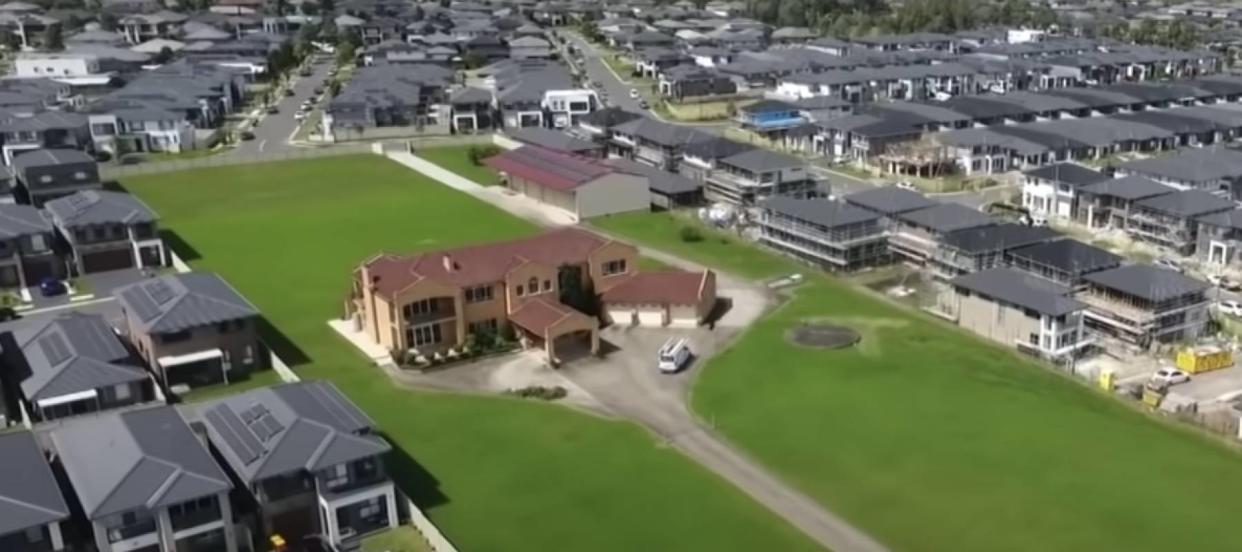This Australian family refused to sell their home, now the property is surrounded by a suburb and could be worth $33 million — here's why land is still the ultimate hold

Nothing says “stick it to the man” quite like holding on to your precious property — despite it being worth millions of dollars — as developers build an entire suburb around you.
That’s exactly what one Australian family seems to have done.
Don't miss
Thanks to Jeff Bezos, you can now use $100 to cash in on prime real estate — without the headache of being a landlord. Here's how
Super-rich Americans are snatching up prime real estate abroad as US housing slumps — but here's a sharp way to invest without having to move overseas
Worried about the economy? Here are the best shock-proof assets for your portfolio. (They’re all outside of the stock market.)
The Zammit family reportedly refused to sell their five acres of land, even as rows and rows of new homes popped up around them. One real estate agent estimated the Zammit property value to be just shy of $50 million Australian dollars ($33 million) in new developments, Australia's 7News reported in March of last year.
The home is located about a 40-minute drive from the center of Sydney, the country’s largest city, on what once was “farmland dotted with little red-brick homes and cottages,” Diane Zammit told the Daily Mail. Today, however, it's dominated by two-storey houses situated so close together that many of them are separated by mere inches.
Most of the neighboring lots sold in 2012 according to the New York Post, when the Zammits could have received about $4.75 million for their home. Real estate agent Taylor Bredin told 7News the family’s land could possibly fit 40 to 50, 3,200-square-foot homes. Each home would be worth $1 million Australian dollars, or almost $700,000.
However, Bredin commended the family for holding out.
Some of the Zammits’ neighbors felt the same way. One told the Daily Mail they were “very happy” the family wouldn’t sell.
This tale of defiance is yet another example of why real estate can be the ultimate hold. Here’s what you can do if you ever wanted to get in on the action.
Real estate value proposition
Real estate is a tangible asset that typically appreciates over time. As a result, it's one of the more popular investment classes for building wealth.
While the Zammit family has found itself in a unique situation with regards to surrounding developments, there are other benefits to holding onto your home. As you pay off your mortgage over time, you'll build home equity. This means you’ll likely come away with more cash when you do eventually sell — and you can use those profits to increase your down payment and get better mortgage terms for your next real-estate venture.
Also, as you build home equity, you become eligible for a home equity line of credit (HELOC), which generally gives you the ability to borrow against your home at a better interest rate.
If you choose to rent part of your home or use it as an investment property, your rental income may help pay for your mortgage, other real estate investments or broader financial goals.
The benefits of buying and holding on to physical property are vast — but if that’s not possible for you, there are other ways you can invest in real estate.
Read more: Commercial real estate has outperformed the S&P 500 over 25 years. Here's how to diversify your portfolio without the headache of being a landlord
Dipping your toes in real estate
If the challenge of buying, maintaining and holding on to physical property doesn’t appeal to you, there are easy ways to invest in real estate without all the hassle.
Today, there are simple online platforms that allow you to invest in real estate investment trusts (REITs) and crowdfunding deals.
REITs are publicly traded companies that own income-producing properties such as apartment buildings, shopping centers and office towers. They collect rent from tenants and pass a portion of that income to shareholders in the form of regular dividend payments.
They can help you dip your toe into commercial real estate, which has outperformed the S&P 500 over a 25-year period. Until recently, this option was only available to those with millions to invest.
Real estate crowdfunding is a relatively new way to invest in real estate. It uses the internet and social media to raise capital by collecting small sums of money from a large group of individuals and businesses in order to collectively invest in a real-estate acquisition. Although it offers a relatively low entry point to become a shareholder, it can be risky.
Shares in a REIT can't be sold quickly as the average stock, and the price can change drastically based on factors such as interest rate hikes. The Fed hiked the rate again July 26, which could lead to a drop in REIT share prices due to decreased demand. However, a REIT can still offer a cheaper option for getting into the market.
What to read next
Americans are paying nearly 40% more on home insurance compared to 12 years ago — here's how to spend less on peace of mind
This janitor in Vermont built an $8M fortune without anyone around him knowing. Here are the 2 simple techniques that made Ronald Read rich — and can do the same for you
Jeff Bezos and Oprah Winfrey invest in this asset to keep their wealth safe — you may want to do the same in 2023
This article provides information only and should not be construed as advice. It is provided without warranty of any kind.
